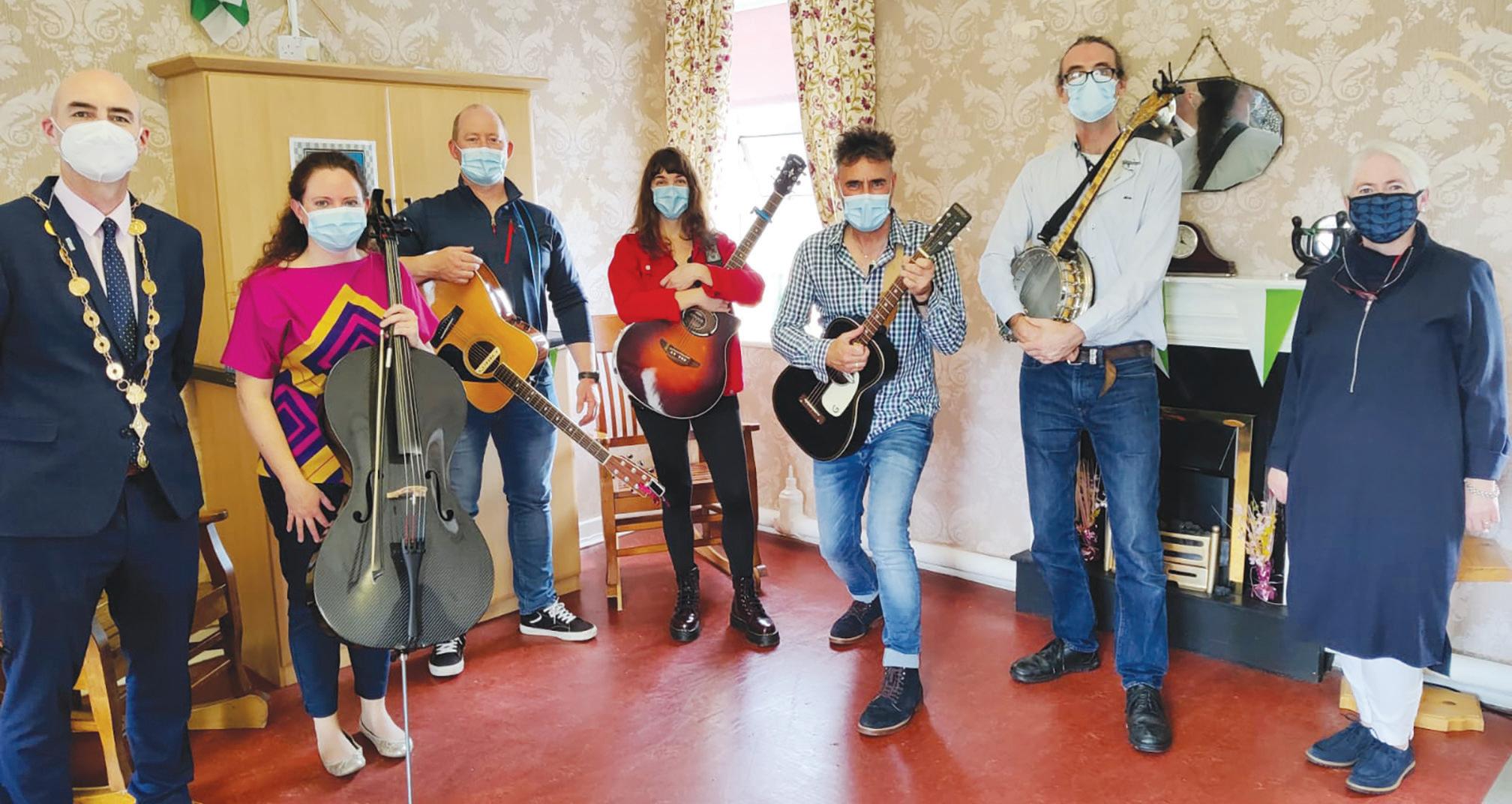
3 minute read
Ground-breaking COVID research
TALLAGHT HOSPITAL AT FOREFRONT OF GROUND-BREAKING COVID RESEARCH
Ground-breaking research by Tallaght University Hospital supports continued booster shots for nursing homes residents.
This unique NH-COVAIR study is the first of its kind in the world to examine what level of long-term protection the COVID-19 vaccine allows residents of nursing homes. A team of top level medical researchers looked at how effective it was in triggering the production of antibodies to fight off the virus.
Older patients in full-time care homes are still the group in society most at risk from COVID-19. Blood tests were taken from 86 people living at five different nursing homes close to Tallaght hospital. The initial sample was taken just before residents had their first dose of the Pfizer vaccine.
The study’s key finding was that participants demonstrated a very protective antibody response to vaccination at five weeks, however there was a significant decline in this response by six months. This was the case across the board (whether or not the person had previously been infected by COVID-19) and led the authors to conclude that nursing home residents should continue to receive booster shots.
The study also discovered that older and frailer nursing home residents reported lower levels of antibody production and that even if a patient had previously caught COVID-19, there were still massive benefits to them taking the vaccine as it ignited fresh antibody production.
The research, involving immunologists, geriatricians and nurses from Tallaght University Hospital (TUH), Trinity College Dublin and several translational research laboratories including Trinity Translational Medicine Institute (TTMI) and Trinity Biomedical Sciences Institute (TBSI). It has just been published in the Journal of the American Medical Directors Association (JAMDA).
Dr Adam Dyer, who was centrally involved in the new research, said, “In our study there were no serious adverse events [reactions] to the vaccine. If there were side effects they were minor, a fever which passed within a day and soreness around the injection site. We found that among the nursing home residents that we tested, the vaccine was well tolerated. It is incredibly safe.”
He said the big question now is what level of antibodies prevents you needing further vaccination.
“There is already growing evidence in nursing homes of breakthrough COVID-19 infections due to low antibody levels, as the impact of the vaccine wanes, hence the need for the booster shot.”
In fact, Dr Dyer believes older people living in care homes may need a third and perhaps a fourth booster shot and in time to come it might be necessary to produce a more personalised vaccine plan for those in this vulnerable group based on their antibody levels.
Dr Adam Dyer and Prof Sean Kennelly
“A lot of the literature says vaccines are not as effective in older people but our research has found this not to be the case, when it comes to the COVID-19 vaccine,” he said.
There were found to be huge variations in how nursing home residents reacted to COVID-19. In the first wave of the pandemic 40% of patients in nursing homes who got the virus died. The remaining 60% didn't and doctors are still trying to understand why it proved so fatal for some and such a mild infection for others.
As medics struggle to understand this difference, new areas of research will include a person’s inflammation reaction, diet, genetics and medical comorbidities.
Dr Dyer said further research is needed to discover why some people produce better antibody reactions and hence have better COVID-19 protection than others.
“Even within older adults with the same level of frailty there are huge variations in terms of how strong their antibody reaction is and how long it lasts,” he said.
The lead author of the NH-COVAIR study was Dr Dyer, a Specialist Registrar in Geriatric Medicine and Irish clinical academic training fellow in Trinity’s School of Medicine. The study Principal Investigators were Professor Sean Kennelly, Consultant Geriatrician, TUH and Clinical Associate Professor at Trinity; and Dr Nollaig Bourke, Ussher Assistant Professor in Trinity’s School of Medicine.










